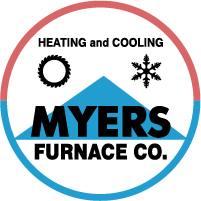
Ever done a double take when you viewed your last energy bill? Although high energy bills can be the consequence of extreme weather conditions, repeatedly high bills can also suggest an inefficient HVAC system or your home is misusing energy by other means, such as drafty windows or insufficient insulation.
One of the simplest ways to determine whether your home is using too much energy is by getting a home service professional to complete a home energy audit, also referred to as a home energy assessment. Keep reading to learn more about home energy audits, including what they are and their advantages.
What Is a Home Energy Audit?
An energy audit is a thorough inspection of how much energy your home uses up and whether – and where – your home may be losing or wasting energy. An inspector will take a look at older energy bills during an energy audit to figure out where energy is being consumed and how much.
The ultimate goal of an energy audit is to help homeowners save money on their energy bills by suggesting energy-efficient renovations, which may include swapping out your current HVAC system, installing new insulation, closing up leaks, or replacing old windows.
While completing the energy assessment, the auditor carries out an inspection of the outside and inside of your home. The auditor completes a blower door test on doorways, windows and fireplaces to find out if there are air leaks in your home. They’ll also evaluate your home’s HVAC system, including the ductwork, the water heater, and the insulation in your attic. Some assessments might also include reviewing your current lighting system.
Benefits of a Home Energy Audit
It can be tough for the average homeowner to be sure how efficient their home is compared to other similar homes in their area. However, local energy companies often provide information about where your home ranks in comparison to similar homes and whether it’s more efficient, about average, or inefficient compared to your neighbors’ homes. This is a useful starting point to figure out if you need an energy audit scheduled.
Some of the benefits of a home energy audit include:
Learning How Efficient Your Home Is
It’s beneficial to understand how efficient your home is and where you’re consuming the most energy. For example, if your ducts are leaking air, it could lead to a large increase in your energy bills and increased wear and tear on your HVAC system since it has to work longer to fully heat or cool your home.
Making Energy-Efficient Updates
An energy audit can expose where you need to make energy-efficient upgrades to save on energy and lower utility bills. This may include replacing worn-down weatherstripping or getting a new energy-efficient furnace.
Improving Health and Safety
Enabling air to seep into your home through doors and windows, or as a result of a lack of insulation can cause excessive moisture to appear, which could negatively impact your home’s humidity levels or lead to mold. This can exacerbate health issues, especially for people who have asthma or allergies.
Increasing Your Home’s Retail Value
Energy-efficient homes are sought after by homebuyers. You can sell your home sooner or for more money by telling potential buyers that it’s energy efficient.
How to Perform an Energy Audit of Your Home
Although completing an energy audit by yourself might not be as thorough as calling a professional, it’ll offer a generalized idea of how energy efficient your home is. If you don’t find any problems during the DIY test, then you likely don’t need to call in a professional. Try this step-by-step checklist:
- Review your HVAC system. Leaky ducts can lose as much as 20% of conditioned air, leading to higher energy bills and greater strain on HVAC equipment. If you find leaks, use duct tape to eliminate them. If your HVAC equipment is old and inefficient, upgrading to a new system can save you a significant amount on your energy bills. In some cases, it might be better to hire a reputable HVAC company to inspect your system.
- Look for air leaks. Air leaks on average can raise your energy bills by 10 to 20%. Inside, look for air leaks in areas where there could be a draft, including along the edge of flooring and along baseboards and electrical outlets. Outside, you can inspect for air leaks in the home’s foundation, siding and mortar. Plug, caulk or seal any air leaks to save money.
- Examine insulation. If your home is older, it could mean your insulation is too. If you can see the joists, you likely need more insulation.
- Check the ventilation. Ensure that all of your kitchen and bathroom exhaust fans are functioning properly, and look for evidence of rot or moisture.
Contact Myers Furnace Company for a Professional Energy Audit
If you are interested in professional help determining how energy efficient your heating and cooling equipment is, contact the HVAC professionals at Myers Furnace Company today. We’ve proudly supported the residents of Belton with quality home services for a long time. Contact us today to request an appointment.
